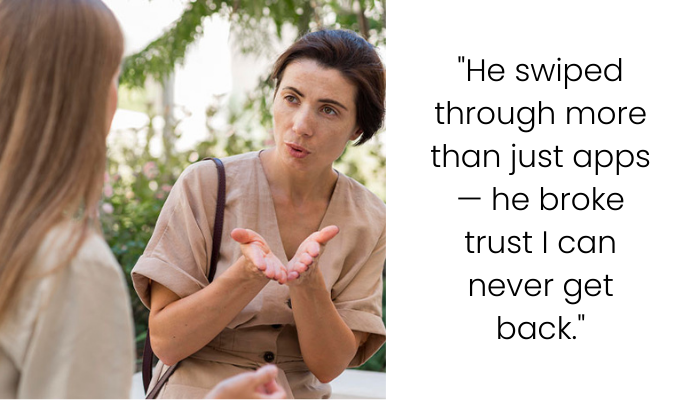My Best Friend’s Husband Went Through My Phone — And She Took His Side
Friendship, at its core, is built on trust. And when that trust is broken — especially by someone you considered family — it feels like the floor drops out from under you. In this case, it wasn’t just a slip-up or misunderstanding. It was an invasion. One that exposed more than just private messages or photos. It revealed cracks in a relationship that was supposed to be unshakable.
OP and her best friend go way back — childhood memories, matching tattoos, lifelong secrets. They even shared a close bond with her friend’s husband, someone who was in their circle for years. But one ordinary day turned into a pivotal moment: her phone was left behind, and he used that moment to snoop. The betrayal? He denied it. Worse? Her best friend took his side — asking for “proof” instead of offering understanding.
Now OP is left with a broken heart, a new phone number, and a decision: reach out, or leave the friendship behind?
With so much personal information on our phones, we should be used to protecting it from prying eyes
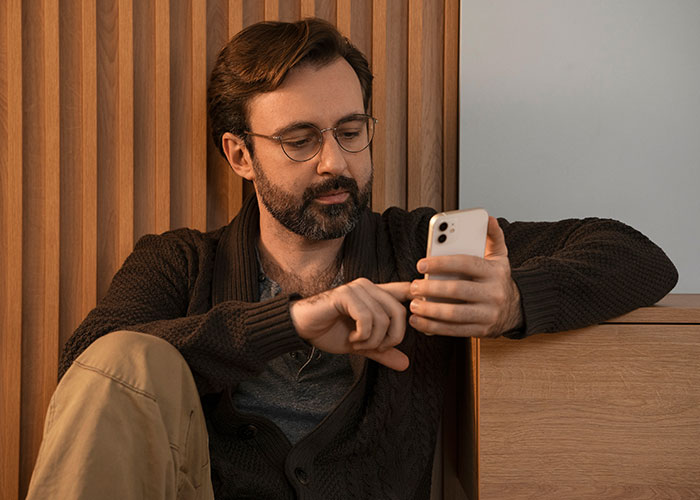
But this woman thought she could trust her friends and left her phone at their home, where it was unfortunately spied on
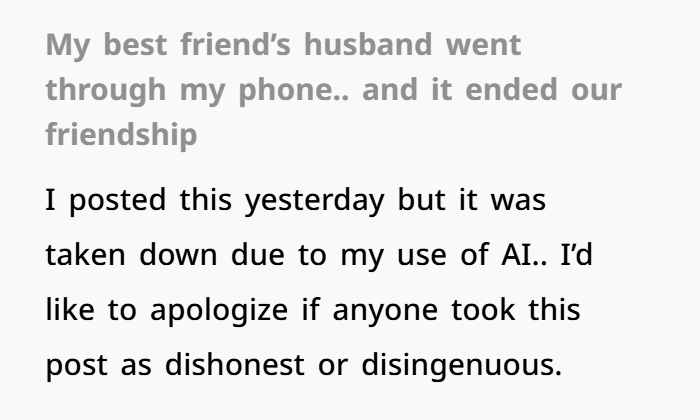
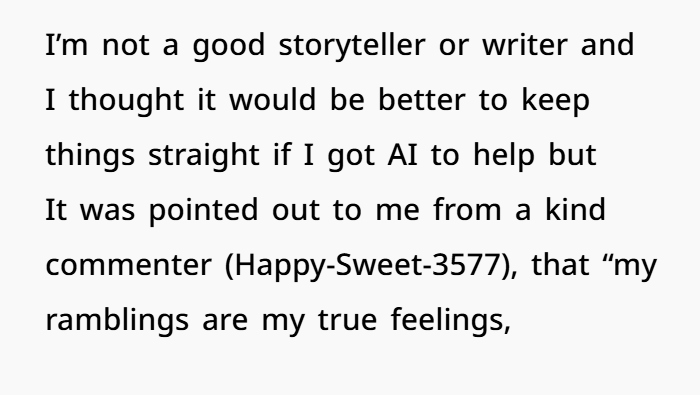
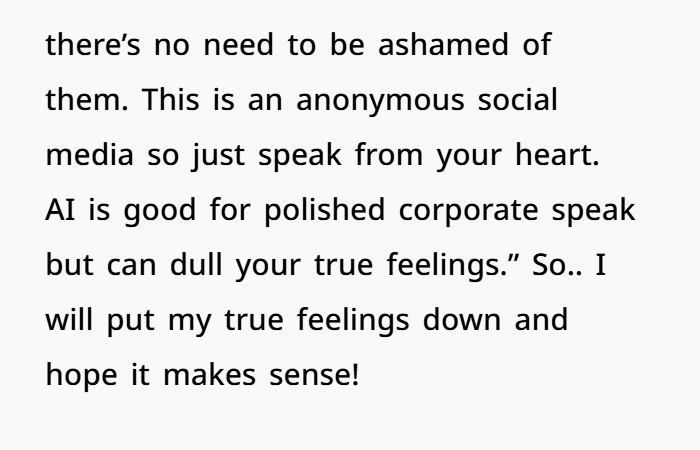
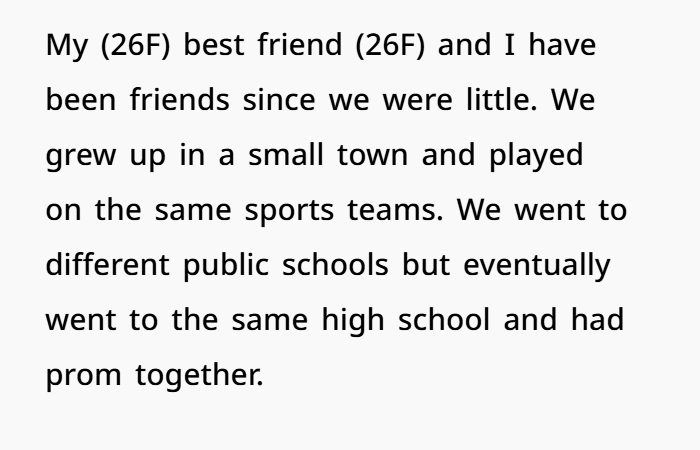
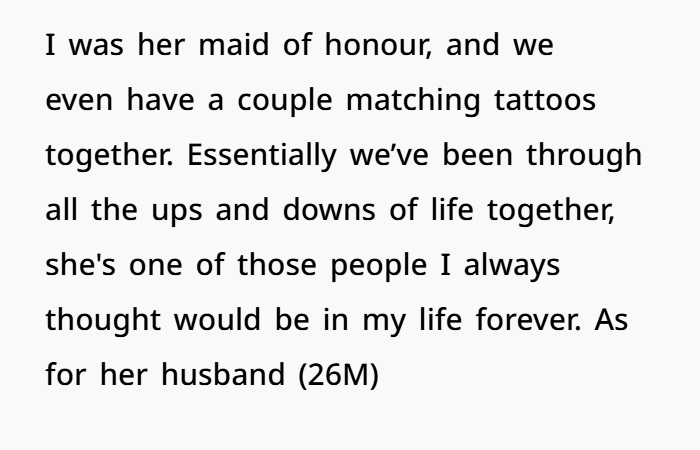
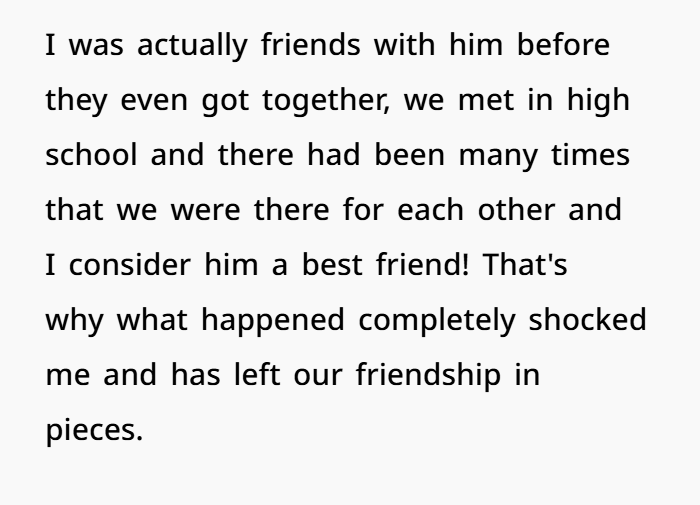
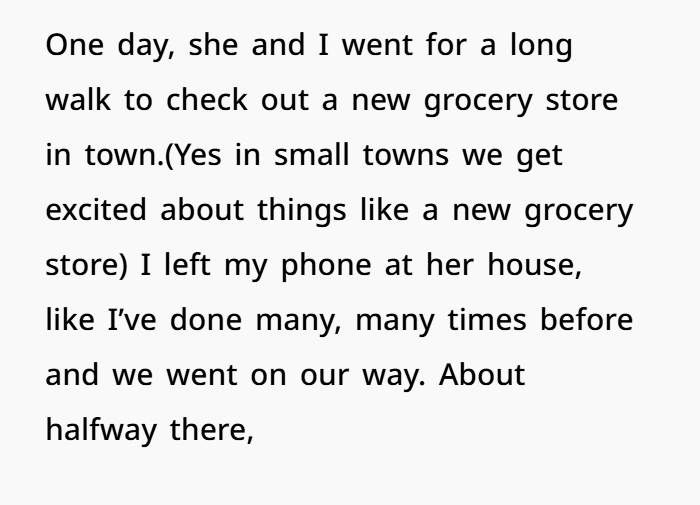
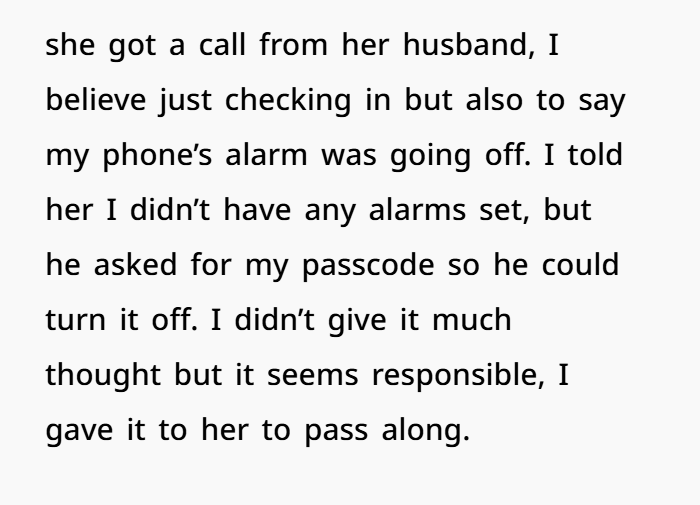
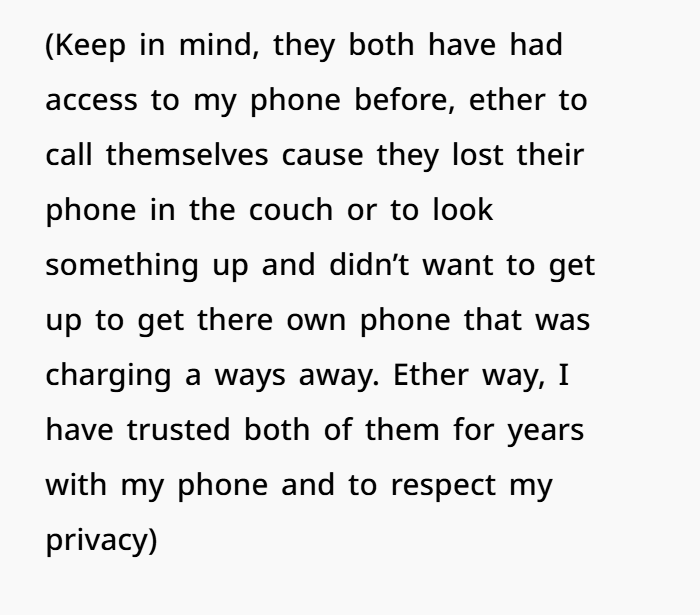
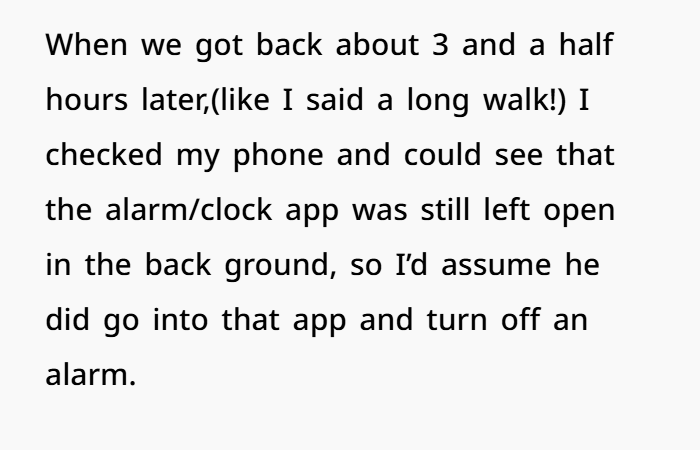
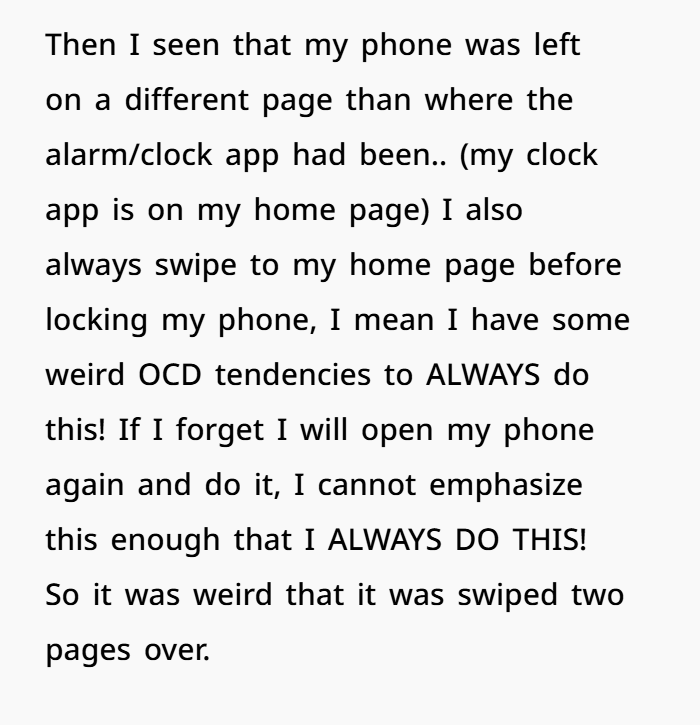
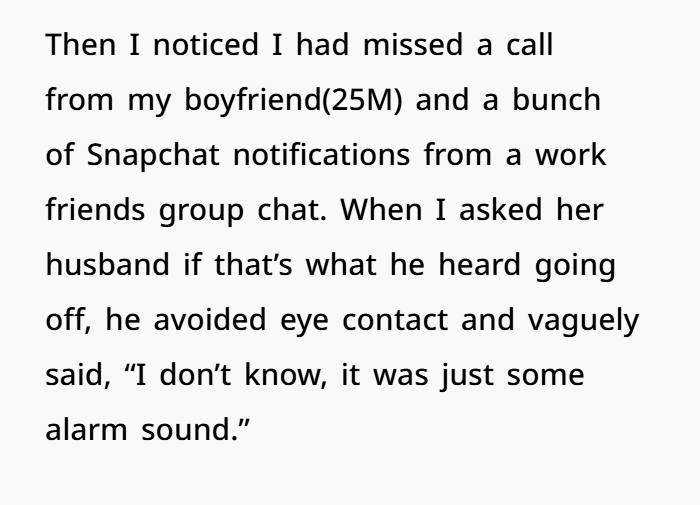
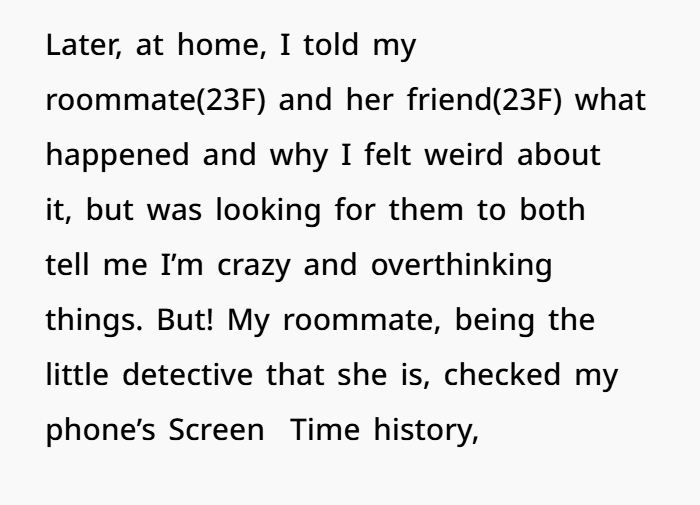
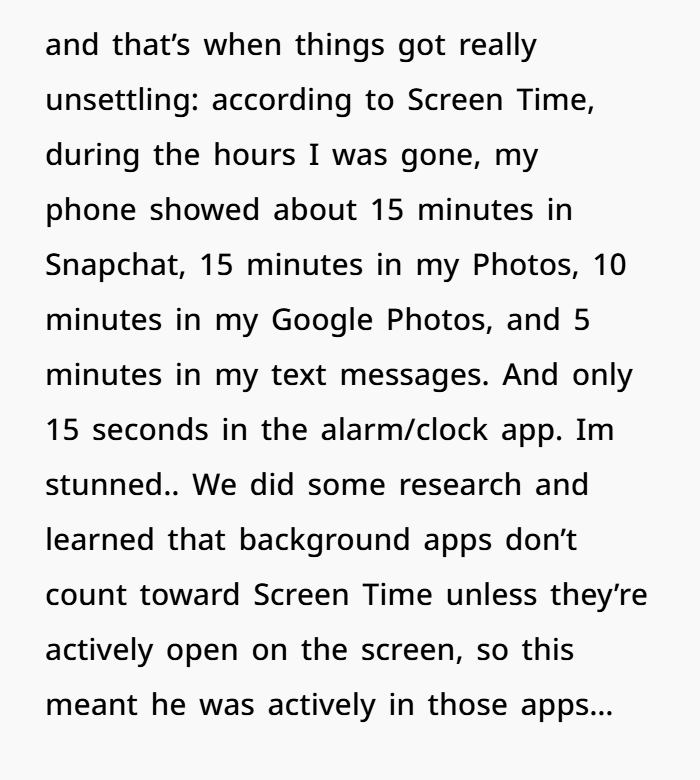
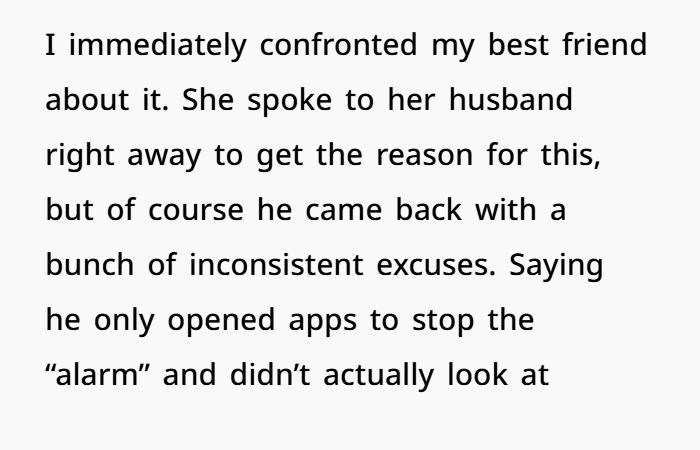
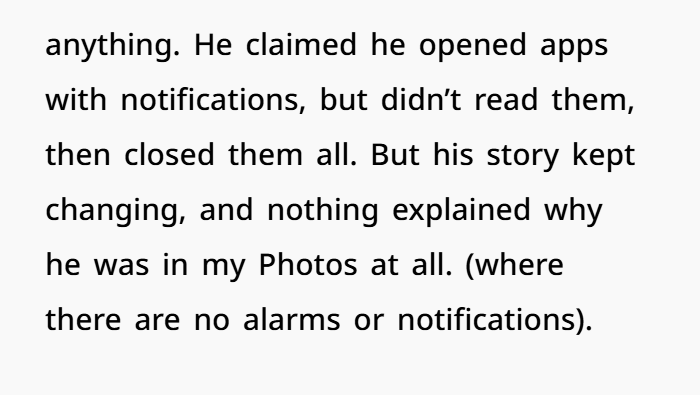
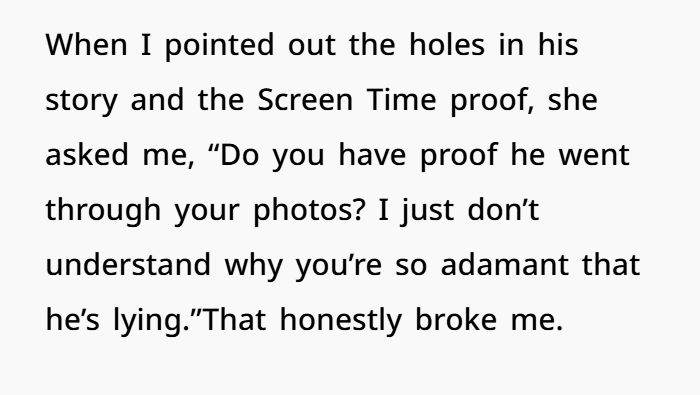
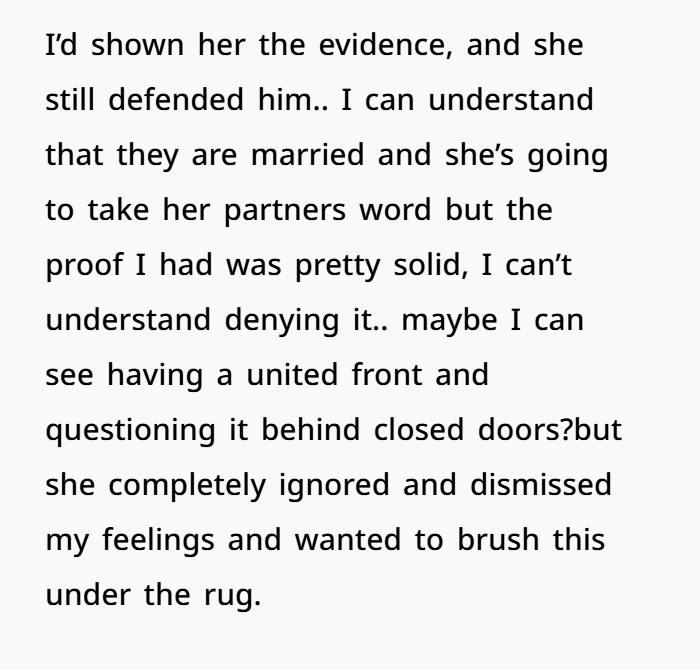

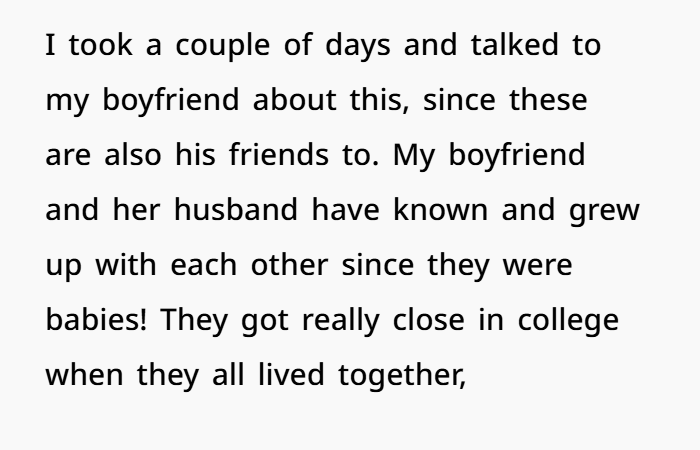
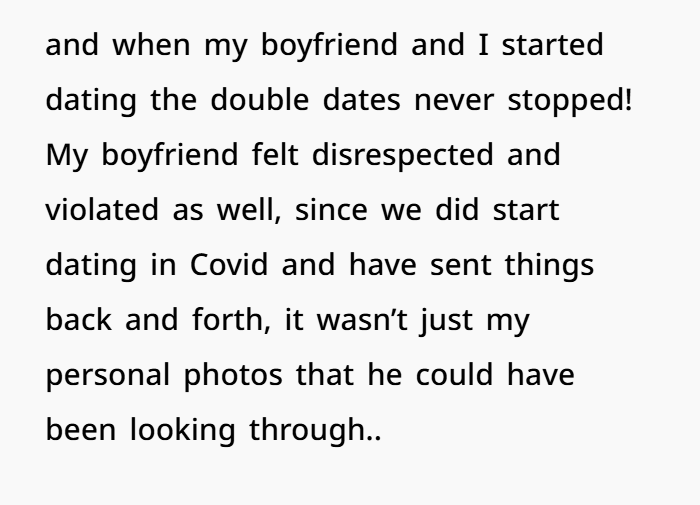
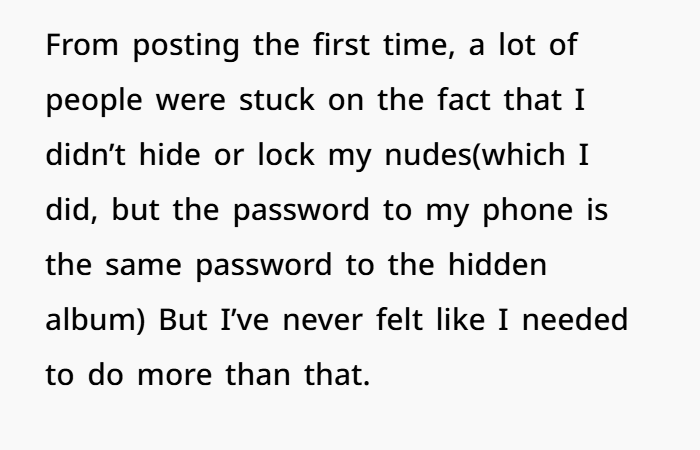
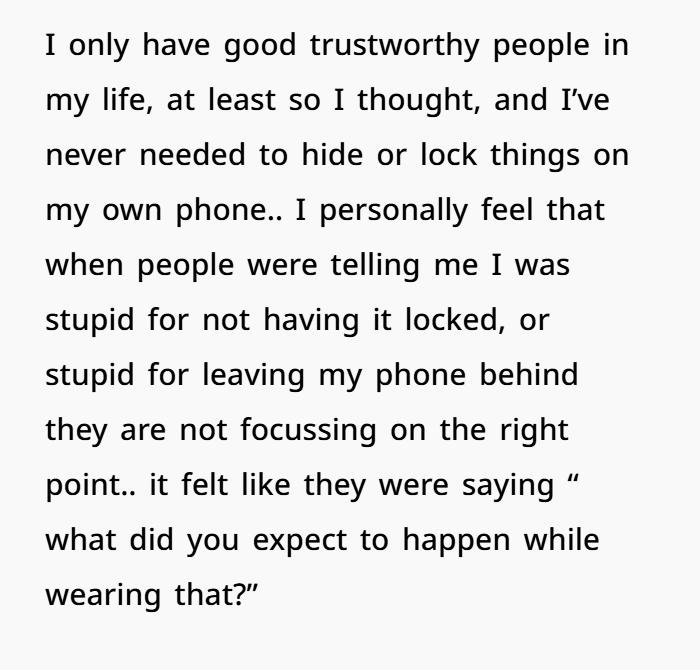
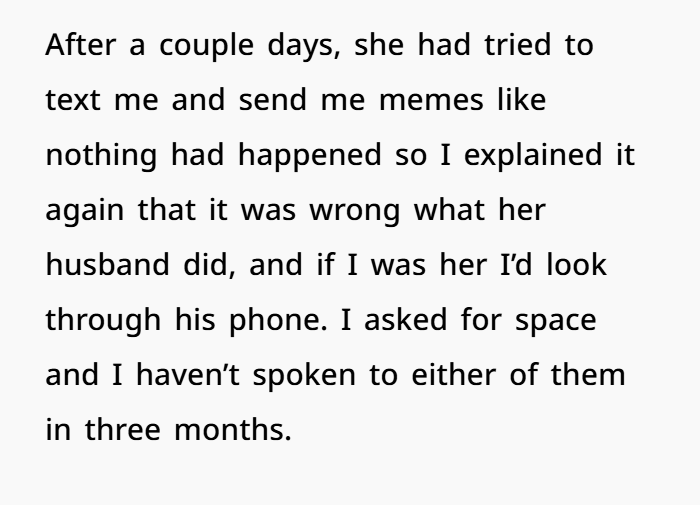
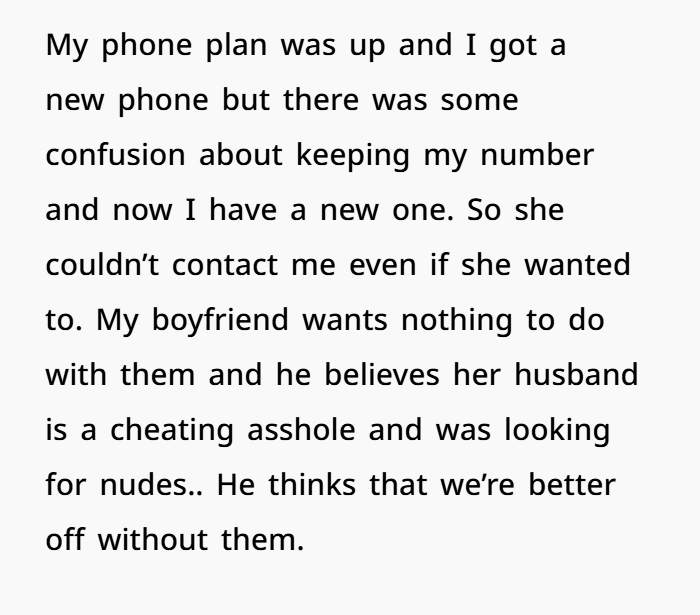
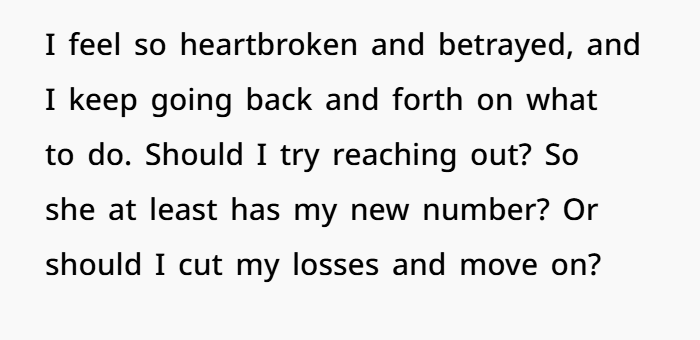
Let’s talk about what really happened here. Because sure, on the surface this might seem like just a guy going through someone’s phone. But when we really look deeper, this is about privacy, consent, boundaries, and a huge breakdown of respect — not just from him, but from her best friend too.

The Importance of Digital Privacy in Close Relationships
In today’s world, your phone is basically your diary, your photo album, your inbox, your everything. It’s where private conversations, intimate pictures, medical info, banking apps, and raw moments live. So when someone goes through it — even if they’re a friend or someone you’ve trusted before — it’s a huge invasion.
And here’s the thing: just because someone has your passcode doesn’t mean they have your permission.
This is similar to sharing a house key with a friend. You don’t expect them to rummage through your bedroom drawers while you’re out. You trust them to use it only for what you intended — in this case, to turn off an “alarm.”
According to cybersecurity experts, digital consent is just as serious as real-world consent. Access ≠ permission. And your digital footprint isn’t just data — it’s a reflection of your identity, your relationships, your life. Violating that trust can lead to feelings of powerlessness, shame, and anger — all of which OP clearly feels. (cybersecurity-insiders.com)
Why This Isn’t “Just” About a Phone
Let’s look at the psychological part of this. When someone invades your space and your best friend defends them, it leaves you questioning everything. Not just “did they go through my stuff?” but also:
- “Why doesn’t she believe me?”
- “Why doesn’t she care that I feel violated?”
- “What does that say about our friendship?”
That kind of emotional invalidation — where your feelings are dismissed, questioned, or downplayed — is a key trait in toxic relationships. Not necessarily because your friend is evil or malicious, but because she’s choosing comfort over truth. She’d rather protect her marriage than confront a hard, uncomfortable reality. And unfortunately, that reality includes not standing up for you.

Psychologists call this betrayal trauma — when someone close to you hurts you, and you’re left with both the pain of the action and the shock that they did it. It’s different than being hurt by a stranger. It’s deeper. More personal. It shakes your worldview.
The Hidden Dynamics of Control and Deflection
The husband’s story was inconsistent. That’s usually a red flag. If someone’s innocent, they stick to their version of events. But when the story keeps changing — “it was an alarm,” then “just notifications,” then “I didn’t read anything” — that’s not honesty, it’s damage control.
Plus, who spends 15 minutes in Snapchat, 15 minutes in Photos, and 10 minutes in Google Photos for an “alarm”?
It’s not just shady — it’s calculated. And her asking “Do you have proof he went through your photos?” is such a classic case of gaslighting. It turns the spotlight away from his actions and puts it on your reaction. It’s like saying, “Well if you can’t prove it 100%, maybe you’re just being dramatic.”
But you already had proof. The Screen Time data is damning. And your gut reaction? 100% valid. This isn’t paranoia. This is intuition. And ignoring that would mean betraying yourself.
Why Victim-Blaming Comments Are So Dangerous
Let’s address the comments people made about your hidden album or lack of extra security.
Saying things like “you should’ve locked your nudes” or “never leave your phone unattended” is the same energy as saying “you shouldn’t have worn that outfit” when someone gets assaulted.

It places the blame on the victim, not the perpetrator.
Yes, you could’ve used a stronger security setup. But that’s not the point. The point is that you trusted these people. And they took advantage of that trust. Let’s not shift responsibility from the person who violated privacy to the person who expected respect.
Should You Reach Out or Move On?
This is the big question. And the answer isn’t black-and-white. It depends on what you want — not what you should do.
If you reach out…
- You give her a chance to reflect, grow, and maybe make things right.
- But there’s risk: she may still choose him over you, deny everything, or minimize your pain.
- You’ll need to protect your heart — keep expectations low and boundaries firm.
Here’s a sample message you could send (if you decide to):
“Hey. I’m sending this so you have my new number. I’m not sure if I’m ready to talk yet. What happened with my phone still hurts. I needed space, and honestly, I’m still figuring out if I can come back from that level of betrayal. If you ever want to really talk — honestly — I’m open to hearing it. But I need truth, not excuses. I hope you’re well.”
This way, you’re opening the door without losing your self-respect.
If you let go…
- You’ll grieve the friendship — deeply. But sometimes grief is better than ongoing pain.
- You make space for friends who do protect your privacy, defend your boundaries, and show you the same loyalty you give them.
- And you allow yourself to heal without reopening wounds.
Letting go doesn’t mean hate. It means accepting that your value has outgrown that dynamic. And that’s not something to mourn — it’s something to honor.
Readers proposed many interesting theories why the husband snooped around the woman’s phone
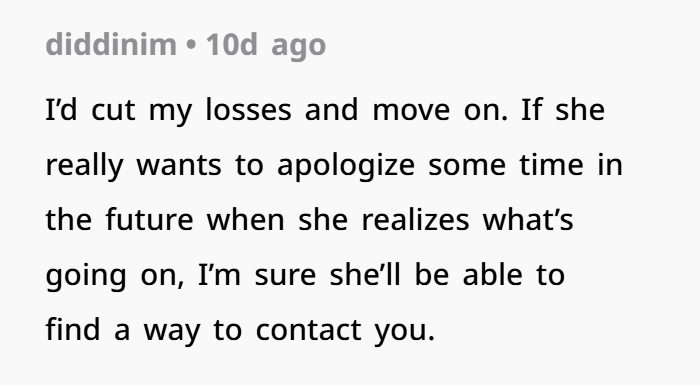
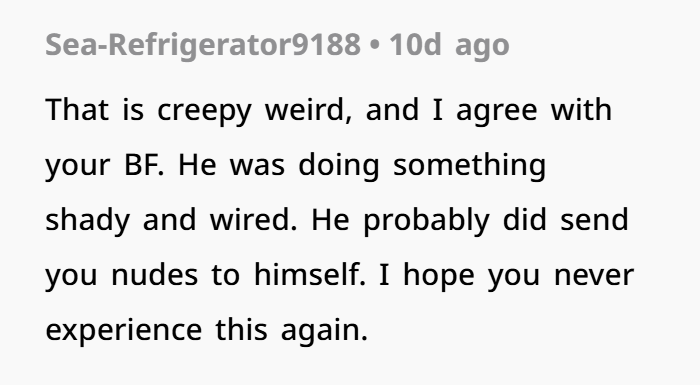
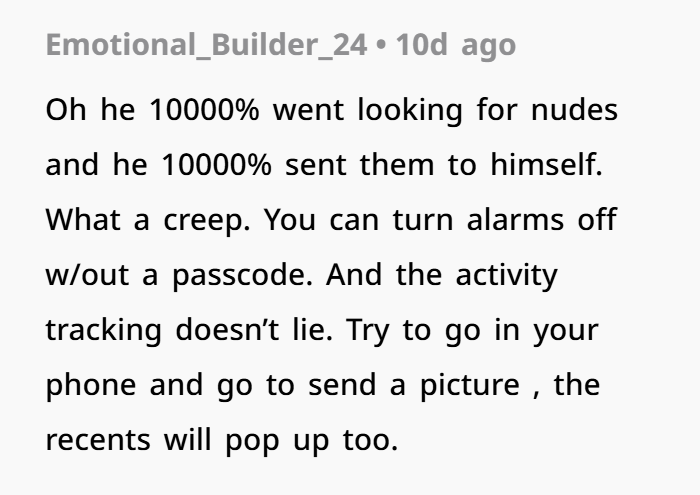
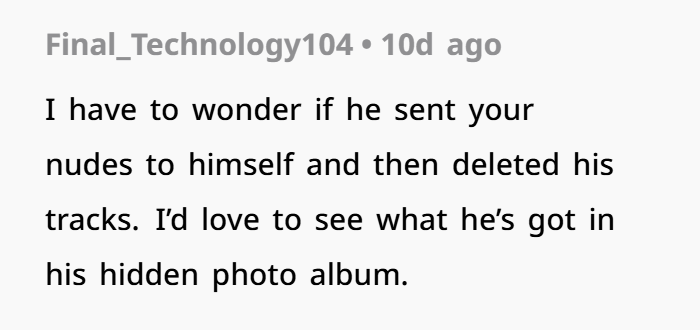


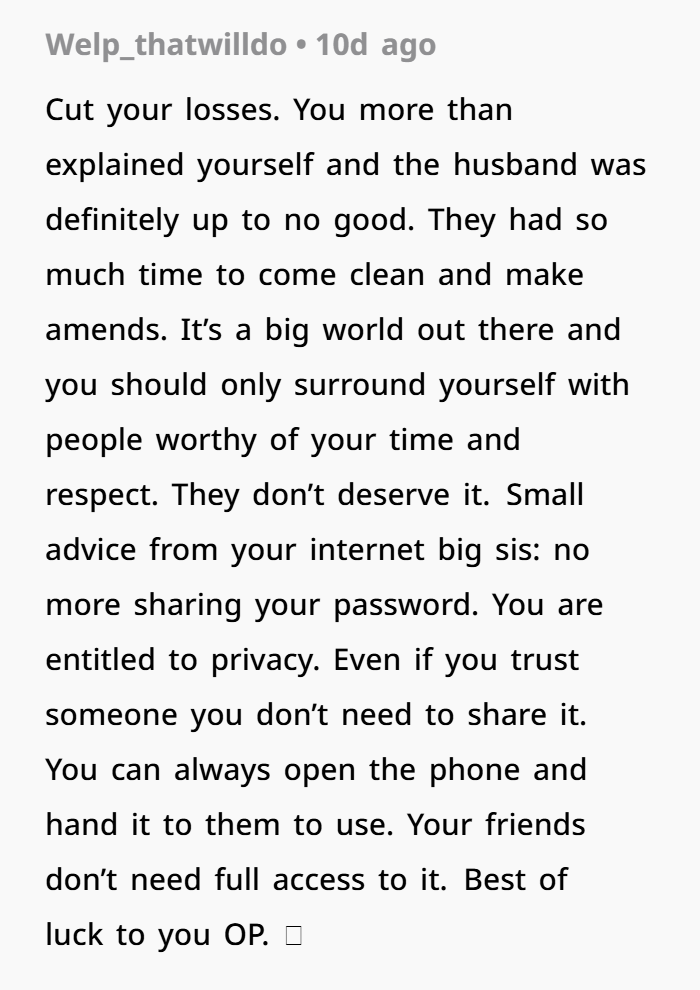
You didn’t overreact. You didn’t create drama. You didn’t blow things out of proportion.
You trusted, and that trust was abused.
Whether you rebuild this friendship or not — the most important relationship right now is the one with yourself. Trust that inner voice that told you something was off. It saved you from further harm.
And next time someone asks why you changed your passcode or don’t leave your phone lying around — you’ll have one hell of a reason.
If you ever want help drafting a follow-up message, setting boundaries, or processing the grief of losing a friend, I’ve got your back.
Just say the word.

